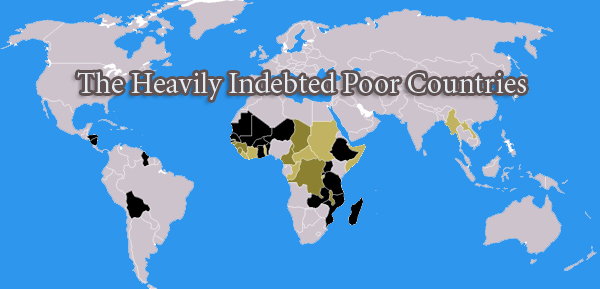- Washington “follows with interest” Morocco’s openness onto Africa (John Kerry)Posted 11 years ago
- The trial of South African Paralympic champion Oscar Pistorius opened in Pretoria on Monday.Posted 11 years ago
- USA welcomes efforts of King Mohammed VI in MaliPosted 11 years ago
- Egypt’s population reaches 94 millionPosted 11 years ago
- Mugabe celebrates his 90thPosted 11 years ago
- Moroccan Monarch to Build a Perinatal Clinic in BamakoPosted 11 years ago
- King Mohammed VI handed a donation of bovine semen for the benefit of Malian breeders.Posted 11 years ago
- Moroccan King’s strategic tour to Africa: Strengthening the will of pan African Solidarity and stimulating the south-south cooperation mechanisms over the continentPosted 12 years ago
- Senior al-Qaida leader killed in AlgeriaPosted 12 years ago
- Libya: The trial of former Prime Minister al-Baghdadi AliPosted 12 years ago
DRC/ Paris Club: The bilateral debt erased
 “The Heavily Indebted Poor Countries (HIPC) process was open to those poor countries which met the following criteria between 1996 and 2004. Firstly their income per head was low enough to qualify for the International Development Association (IDA) assistance. Secondly that the country had debts of more than one and a half times their annual export earnings. Thirdly they have a World Bank and IMF programme.
“The Heavily Indebted Poor Countries (HIPC) process was open to those poor countries which met the following criteria between 1996 and 2004. Firstly their income per head was low enough to qualify for the International Development Association (IDA) assistance. Secondly that the country had debts of more than one and a half times their annual export earnings. Thirdly they have a World Bank and IMF programme.
In order to embark on the HIPC scheme, they have to have a “track record” with the IMF: that is to say they have done what the IMF says for at least three years. Then they have to comply with a large number of conditions in order to complete HIPC and get debts cancelled”.
The Paris Club and Brazil have finally canceled the entire DRC’s debt under the enhanced initiative for Heavily Indebted Poor Countries (HIPC initiative) when this country has reached the completion point in last July. This cancelled amount of 7.35 US billion dollars must now be assigned to the fighting against poverty. This decision has followed the favorable treatment that the Paris Club, composed by 19 permanent members including the United States, a dozen European countries, Russia and Japan, has granted on February the 25th to the country. It embodies a portion of the 12.3 billion debt announced, on the 1st of July, by the International Monetary Fund (IMF), which also includes the multilateral debt of the DRC. According to the IMF and the International Development Association (IDA), the DRC total external public debt, bilateral and multilateral, excluding China, was estimated at 13.70 billion US dollars at the end of 2009. Therefore, the reform program initiated in December 2009 under the IMF auspice is paying now, even if the DRC still owing some 6 billion US dollars to China. The reforms implemented by Kinshasa are aiming to implement a strategy for poverty reduction and growth, to maintain macroeconomic stability, to progress in the management of public spending and debt, and to improve the administration and services in key social sectors such as health, education and rural development. But the Paris Club creditors are worried. They noted that the country is determined to improve, however, they are expressing some concern about the business climate and called on the DRC “to carry out further reforms to improve governance, rule of law and fight against corruption.
